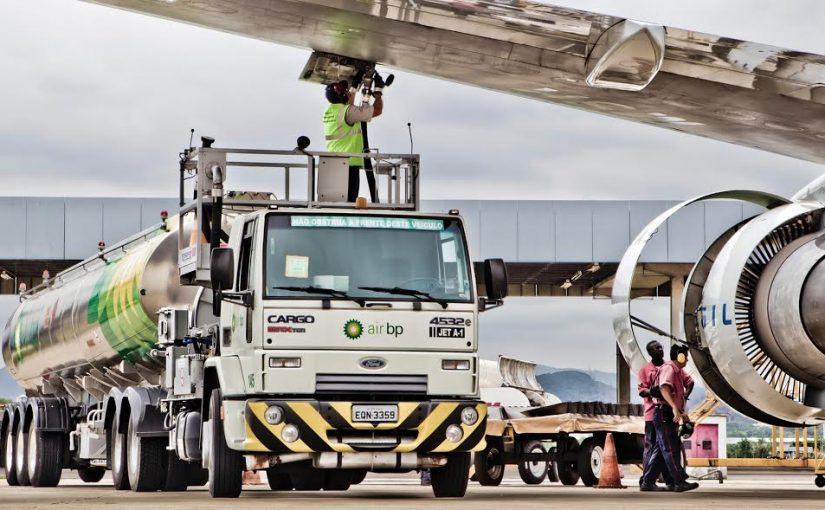Mozambique: Syrah secures $6.5M DFC loan disbursement for Balama graphite operation
Animal spirits at the Third Gas & LNG Congress in Maputo

www.bp.com (File photo)
It is striking how much reality contrasts with what is generally related in the media. In the energy sector, that contrast was clearly apparent during the Third Deepwater East & Southern Africa Congress 2017 (a sub-event of Upstream and Midstream East & Southern Africa Conference) held Thursday in Maputo, Mozambique.
There, two of the world’s biggest oil and gas majors, British Petroleum (BP) and Royal Dutch Shell (Shell Mozambique), did not express the slightest concern about the recent setback in the price of energy commodities. Two main reasons explain their apparent total peace of mind.
First, the stakes are too high. That is, Mozambique is too gas-rich to be ignored. If one doesn’t tap now into its natural gas resources, others will do it at one’s expense in the long term. Second, and most importantly, business models have evolved. These are now more robust, able to withstand extreme temporary price fluctuations. Italian giant Eni demonstrated it last week, through the sale of 25% of its interest in gas-rich Area 4 block to ExxonMobil, reflecting its strategy based on cost-sharing at the early stages of exploration and production (E&P), with the aim of achieving a rapid monetization of its projects.
For his part, Onno van Kessel, Vice President of Mozambique GTL & Integrated Gas Development at Shell, talks about the possibility to “diversify the group’s exposure to prices”. This means, for example, turning gas into other products. In Qatar, for instance, the world’s largest gas field, Shell has built a giant plant called Pearl GTL (gas-to-liquids) to turn natural gas into liquid products such as lubricants, transport fuel and raw materials for chemicals and detergents.
Jerome Milongo, LNG Originator at BP, also evoked the high multiplier effect of foreign direct investments in liquefied natural gas (LNG) projects in low-income countries such as Mozambique. Natural gas-fired power generation can not only stimulate industrial and non-industrial demand for other gas-related products, but also make of Mozambique a strong LNG supplier for its neighboring countries.
“In the long term, there is a potential for the construction of pipelines in the country to supply LNG to significant markets such as South Africa”, explains Jérôme Milongo, during a panel discussion at the conference. Underlining Shell’s van Kessel’s point about diversifying the product mix that can be achieved, BP’s LNG originator adds that, beyond opportunities in the export market, domestic gas demand from local fertilizers and petrochemicals plants can be a natural consequence of foreign investments in Mozambique gas fields.
However, such solid perspectives do not mean that risks have suddenly evaporated. One of the key risks lies indeed in finding the appropriate local content providers. Reliability and operational safety are critical. In developing markets, enhancing local content is indeed a big challenge due to the high degree of complexity of energy-related inputs and technology. Mozambican human capacities capable to deal with such issues are currently scarce, to say the least.
Onno van Kessel advocates a gradual approach to fill the gap. Reminding his experience in Malaysia, where 95% of BP’s workforce and personnel are Malaysian. “We started from a low-skill base, in the catering, construction, logistical and transport sectors, to name a few, gradually transferring technology and know-how as the project developed”, says Shell’s GTL expert.
“The Malaysian plant in question is now 25 years old, which demonstrates the patience that one must display in order to turn investments into a real technological gain for the local workforce”, insists Onno van Kessel, whose company was awarded gas development projects in Mozambique las January, along with Norway’s Yara and GL Energy. While Yara will develop fertilizers and 30-50 megawatts of power, Shell Mozambique will produce diesel and 50-80 megawatts of power and GL Energy Africa will produce 250 megawatts from gas resources.
However, Ataide Sacramento, petroleum geophysicist at Portugal-based oil company Galp, says that the period separating the early stage of an oil and gas project and its commercialization phase is about 10 years. As gas developments in Mozambique are only recently starting, this thus leaves plenty of time for the State to train the country’s future engineers and technical workers.
As a highly-skilled Mozambican engineer, Ataide Sacramento himself benefited from a scholarship from Eduardo Mondlane University in Maputo to a prestigious engineering training institution in Norway, whose petroleum and governance expertise is in high demand from around the world. “It has completely changed and reshaped my perspective about energy-related development in Mozambique”, admits Ataide Sacramento, speaking on the sidelines of the LNG conference.
Finally, from the Government perspective, optimism is equally high. Also taking part to the Third Deepwater East & Southern Africa Congress 2017, Vasco Correia Nhabinde, national head of the Directorate of Economic & Financial Studies at the Mozambican Ministry of Economy and Finance, states that domestic natural gas consumption is expected to grow by 11% between 2012 and 2040, mainly for electricity generation, citing projections from the U.S. Energy Information Administration (EIA)’s International Energy Outlook 2016 (IEO2016).
“There is indeed a huge opportunity as Mozambique is facing reduced water resources”, observes Vasco Correia Nhabinde. In a separate report, the research organization specialized in agriculture, CGSpace, states that the Zambezi river is certainly a great earner for the countries which border it, in tourism, agriculture and fisheries.
But its waters are being siphoned off for irrigation and hydro-electricity to such an extent that patterns of sedimentation are shifting and reduced water levels are changing ecological and hydrological conditions. Such circumstances de facto pave the way for alternative and cleaner-than-oil energy sources like natural gas.
By Levy-Sergio Mutemba












Leave a Reply
Be the First to Comment!
You must be logged in to post a comment.
You must be logged in to post a comment.